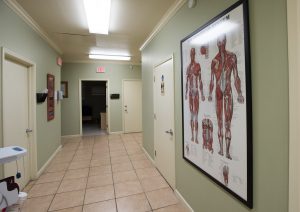
I would like you to imagine for a moment that you have just been diagnosed with a failing heart. Your heart is not pumping blood to the rest of the body as it should, and for the rest of your life you will be learning how to deal with breathlessness, fatigue, and swelling in your legs. You will learn that there is a 50% chance you will end up in hospital every six months, and that half of people who live with this condition will die within five years of being diagnosed. But what you may never learn is that specialized heart failure clinics have been proven to prolong and improve the lives of people like you, and prevent you from needing to go to hospital. You may not learn this because just as your heart begins to fail, our healthcare system is failing you.
Despite the fact that heart failure afflicts almost one million Canadians, only an estimated 14% of those diagnosed will end up receiving specialized care. We know that heart failure is the second leading cause of hospital admission in Canada, and many of these admissions are preventable. We also know there are effective heart failure clinics that have been proven to reduce such events. Yet, with such discouragingly low enrolment rates, one must be willing to admit system failure and consider solutions to improve access that do not continue to perpetuate the status quo. The time has come to upscale access to heart failure clinics.
Advanced practice nurses (APN) specialized in heart failure are a part of the solution that are currently overlooked and underutilized. They are equipped with the necessary knowledge, training, and education to not only provide the necessary care for this population, but are also with the skills to enact needed system level changes. Historically, primary care physicians have provided heart failure care, and continue to do so for the remaining heart failure population. Yet the unfortunate reality is that fee-for-service structures, significant time constraints, and inconsistencies between provider knowledge and practice contribute to sub-optimal care. Furthermore, although primary care physicians have expertise in a wide-range of diagnoses, they often do not have the same degree of in-depth knowledge required for treating and managing this condition. Technological and medical advances to improve heart failure outcomes have simply outpaced the old system; as a result, the heart failure population is living longer but are often sicker. With an ever-growing demand on primary care physicians to keep up with advances in all aspects of primary care, I ask, why are we maintaining the status quo when APNs who have specialized knowledge and skills could provide the care this patient population requires?
Canadian heart failure practice guidelines recommend patient management through specialized heart failure clinics, yet little detail is offered about the nature of health care personnel providing such services. Increasing the number of nurse practitioners (NP) specialized in heart failure would be a concrete solution to both increase the capacity of heart failure clinics, and provide the specialized care that has been proven to reduce hospital admissions, and improve quality of life. Each commonly cited barrier to appropriate care could be addressed through integration of NPs into heart failure clinics. NPs are able to follow patients whether in hospital, home or palliative care and are already effectively providing this care across the continuum. NPs can improve equitable access to care through resourceful means, such as telephone visits, technology and monitoring devices, as well as house calls. We know that many heart failure admissions are preventable, and that this complex chronic condition requires care across multiple settings. We also know that NPs are a proven solution to address these pervasive barriers. What is needed now is the acceptance and active advocation for an increase in NP roles in heart failure clinics across the country.
Heart failure is a growing epidemic, and the problem will only continue to rise. We have come to accept heart failure as a “revolving door condition”, but it does not have to be. We must shake up the status quo and improve access to heart failure clinics, by increasing the number of NPs specialized in heart failure. NPs provide excellent, evidence-based care, decrease preventable hospital admissions, and contribute to improving the lives of those managing heart failure. Your heart may be failing, but your healthcare system does not have to.
Rachel Merrithew is a registered nurse and a student in the Master’s Program (Nurse Educator Option). She currently works as the heart failure clinic coordinator in Fredericton, New Brunswick.

Recent Comments